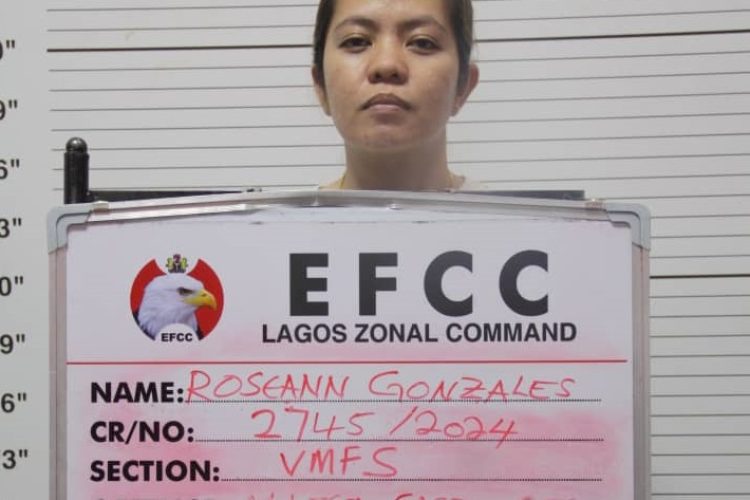In a development first reported via the Economic and Financial Crimes Commission’s (EFCC) verified X (formerly Twitter) handle, the Federal High Court sitting in Ikoyi, Lagos, has convicted and sentenced 12 Filipino nationals to one year imprisonment each for offences bordering on cyber-terrorism and internet fraud.
Convictions and Sentencing Details
Justice Yellim Bogoro delivered the ruling on Friday, May 23, 2025, following separate guilty pleas by the defendants. All 12 had entered plea bargains with the EFCC’s Lagos Zonal Directorate 1.
Those convicted are:
Anjeanette Topacio, Gladys Joy Mag-Iba, Jean Calago, Shairah Mae Reyes, Roseann Gonzales, Lari Jane Tayag, Mary Grace De La Cruz, Krystel Aquilesca, Jonilyn Agulto, Paizza Camara, Vivian Pionella, and Jonalyn Mendoza.
The EFCC, in its charges, alleged that the convicts were involved in organized digital schemes aimed at destabilizing Nigeria’s economic and social structures by procuring Nigerian youths for identity theft and other cyber-enabled fraud activities.
“Cyber-terrorism is no longer a distant threat — it’s a clear and present danger now prosecuted in Nigerian courts.”
Key Sentencing
Justice Yellim Bogoro sentenced each of the twelve defendants to one year imprisonment and imposed a fine of ₦1 million on every convict. In addition to the custodial and financial penalties, the court ordered the forfeiture of all electronic devices recovered from the convicts to the Federal Government. Furthermore, the Comptroller-General of the Nigeria Immigration Service, Mrs. Kemi Nanna Nandap, was directed to ensure the deportation of all twelve convicts within seven days of their prison terms being completed.
Legal Context: Expanded Use of Cybercrime and Terrorism Statutes
The EFCC prosecuted the case under a combination of critical legislation, including, Cybercrimes (Prohibition, Prevention, Etc) Act, 2015 (as amended 2024), Terrorism (Prevention and Prohibition) Act, 2022 and Advance Fee Fraud and Other Fraud Related Offences Act, 2006
By invoking cyber-terrorism provisions against foreign defendants, the agency signalled an assertive stance against digital crimes with transnational and national security consequences.
What’s Next?
The EFCC will oversee the recovery of forfeited devices, while the Nigeria Immigration Service has been directed to deport the convicts within seven days of completing their sentences.



